Contact Info
- 6th Floor, I & M Building 2nd Ngong Avenue, Upper Hill
- +254 (0)20 2985000; +254 (0)729 111031 / +254 (0)731 000065
- info@pasgr.org
- Office Hrs: Today 9.00am to 6.00pm
From July 9 – 11, 2025, PASGR, in collaboration with the Universities of Nairobi, Ibadan, and Pretoria, convened the third in-person Joint Annual Academic Seminar (JAAS) for the collaborative Doctoral Programme in Public Policy (DPP) in Limuru, Kenya. Despite the brisk “Kenyan winter,” the event brought together over 60 current and former DPP fellows, supervisors, researchers, and policymakers for three days of rigorous dialogue, peer learning, and capacity building.
Since its inception in 2019, the DPP has addressed a critical gap in African higher education: the need to expand doctoral-level scholarship and cultivate a sustainable ecosystem of policy researchers and leaders. The 2025 JAAS reaffirmed PASGR’s commitment to nurturing the next generation of African public policy professionals. Discussions centered on the evolving role of universities in producing research that informs policy and drives socio-economic transformation.
Speaking during his inaugural address as PASGR Executive Director, Prof Fadel Ndiame drew attention to the growing global governance crisis, characterised by soaring population figures, deepening hunger, and entrenched gender inequalities. He challenged participants to reflect on the critical role universities must play in informing policies and shaping solutions to these pressing global issues.
JAAS has become a hallmark of intellectual exchange, cohort development, and practical training. Through structured plenaries and group sessions, participants engaged with advanced research methodologies, supervision techniques, and strategies for effective policy engagement.
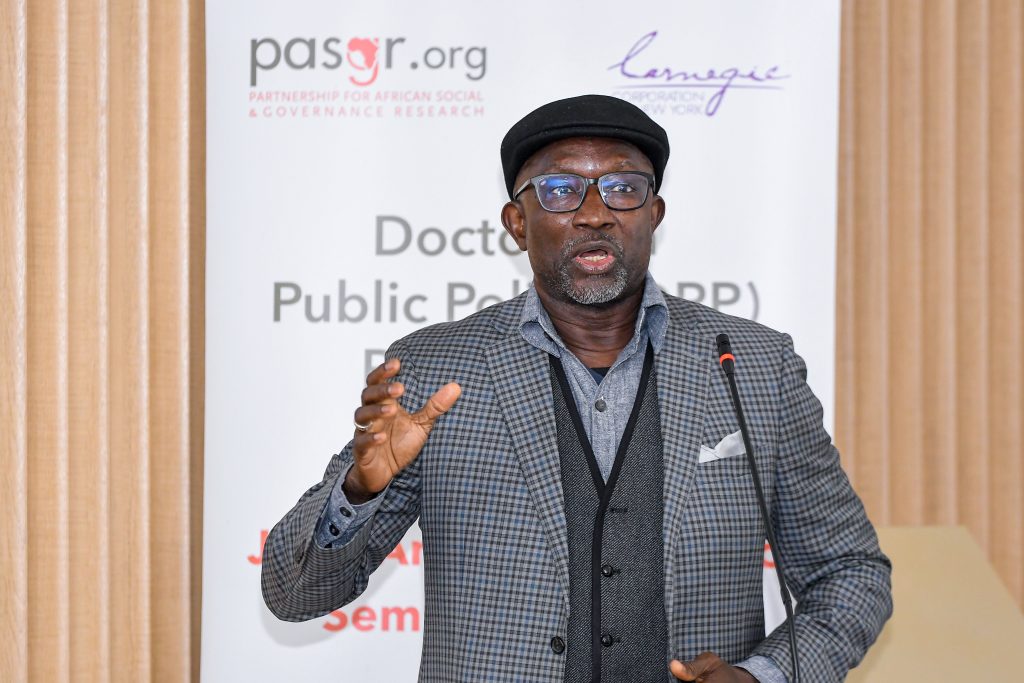
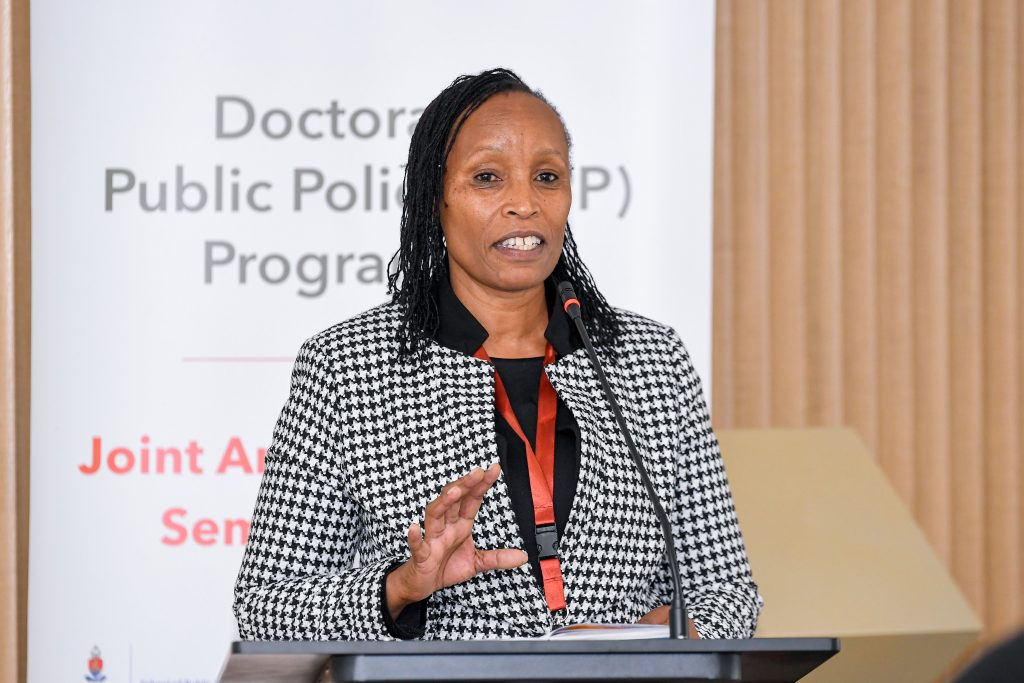
Introduced last year, poster presentation sessions provided fellows with a platform to share work-in-progress and receive constructive feedback from peers, alumni, and faculty. These sessions are instrumental in honing the communication skills of the young fellows, essential showcasing their research. The JAAS also showcased PASGR’s Utafiti Sera model, an innovative approach to bridging the gap between research and policy. This was relevant in helping the fellows grasp the importance of engaging policy actors from conceptualization of research to influencing its uptake in policy making. A new feature was the session on AI and research by Dr Zama Mthombeni and a subsequent session on Digital Instruments and Platforms for Literature review and data analysis by Dr Stellah Lubinga. Both sessions demonstrated ethical ways of leveraging technological advancements in policy research.
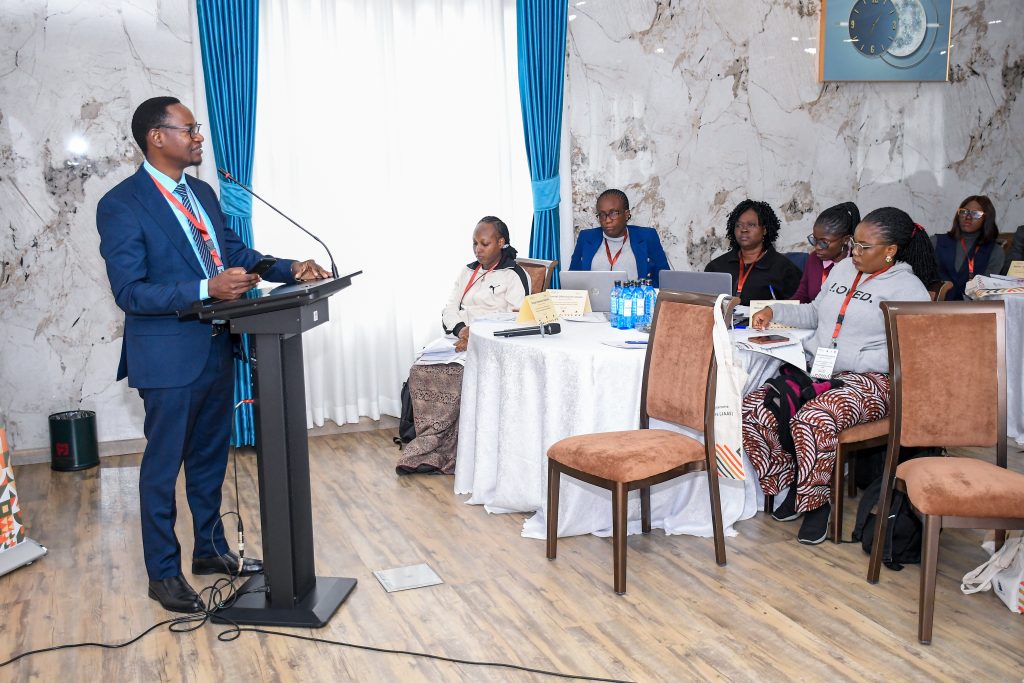
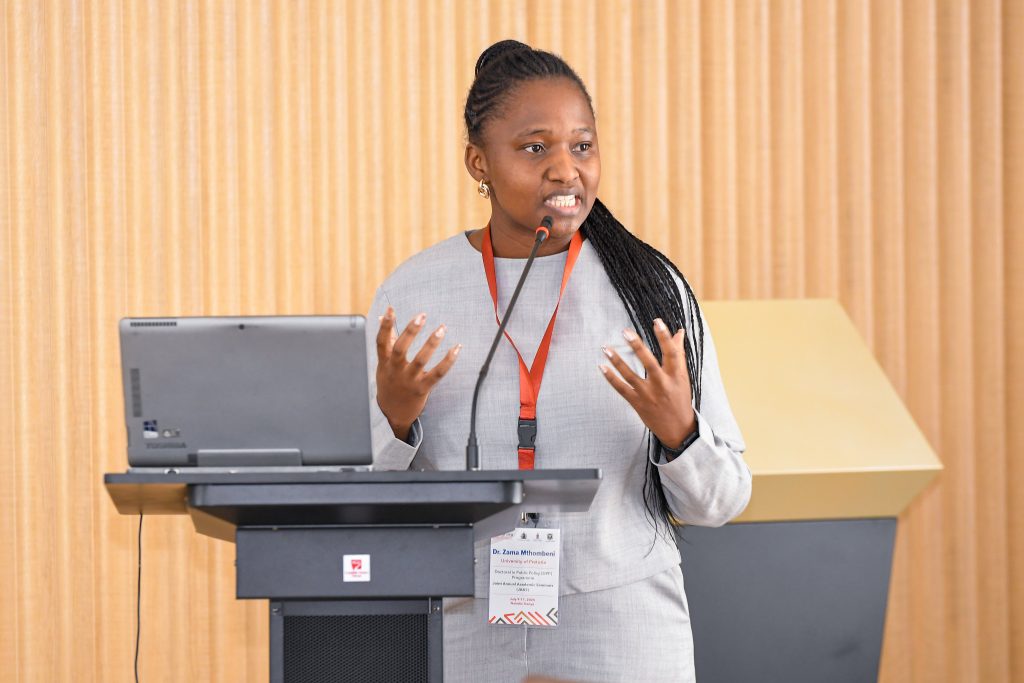
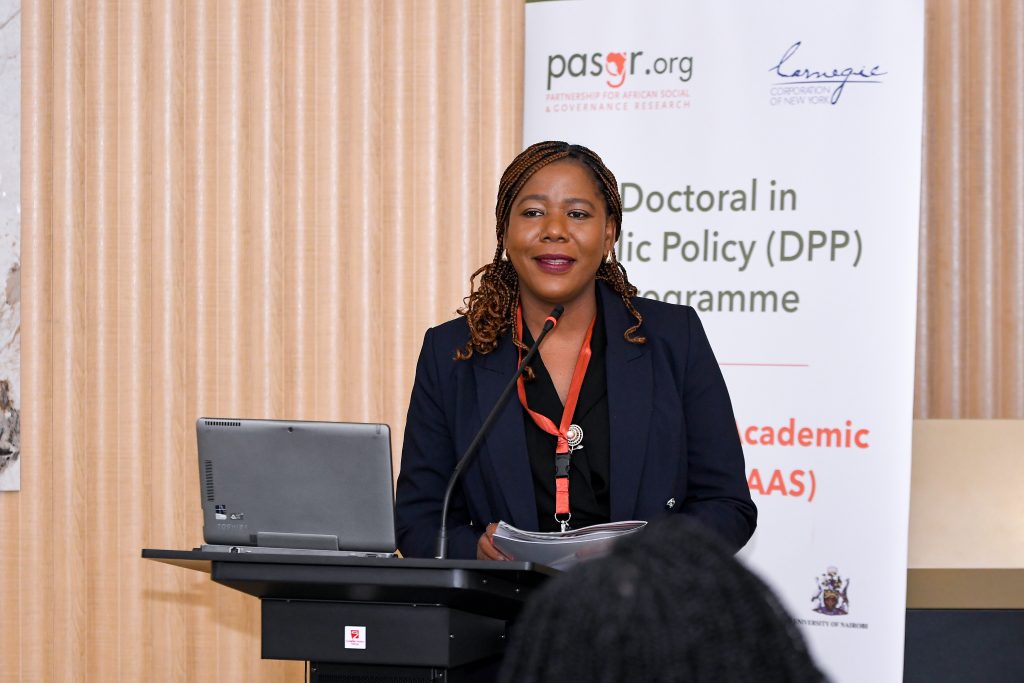
A highlight of this year’s JAAS was the participation of DPP alumni. Dr. Martin Kizito, from the inaugural 2020 cohort at the University of Pretoria, delivered a thought-provoking keynote reflecting on his PhD journey and how it has shaped his success as a faculty dean. This set the tone for the alumni panel sessions, which offered valuable reflections on the PhD journey and transitioning into impactful careers, underscoring the importance of mentorship, academic networks, and targeted support.
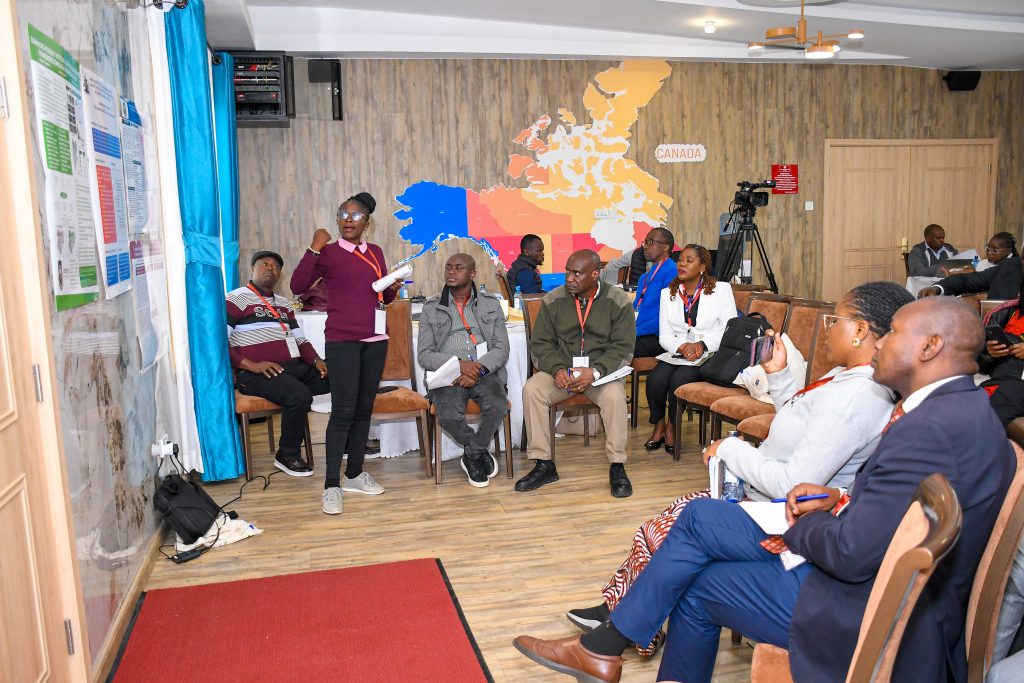
Reflecting on five years of the DPP, the 2025 JAAS served as a moment of collective assessment and strategic foresight. Participants assessed the programme’s progress, identified areas for enhancement, and renewed their commitment to its long-term vision for a dynamic, self-sustaining community of African public policy scholars and practitioners. In her reflection during the forum, PASGR Head of Professional Development & Training, Dr Pauline Ngimwa who has directed the academic seminar since inception reiterated JAAS’s purpose of strengthening the DPP network through various capacity strengthening sessions and creating networking opportunities. As the seminar concluded, it left behind strengthened cross-cohort networks, renewed student motivation, clearer PhD completion pathways, enhanced research capacity, and improved supervisory practices. The success of this convening affirms the value of sustained investment in collaborative platforms like JAAS, which are vital to building a robust and inclusive research ecosystem across the continent.
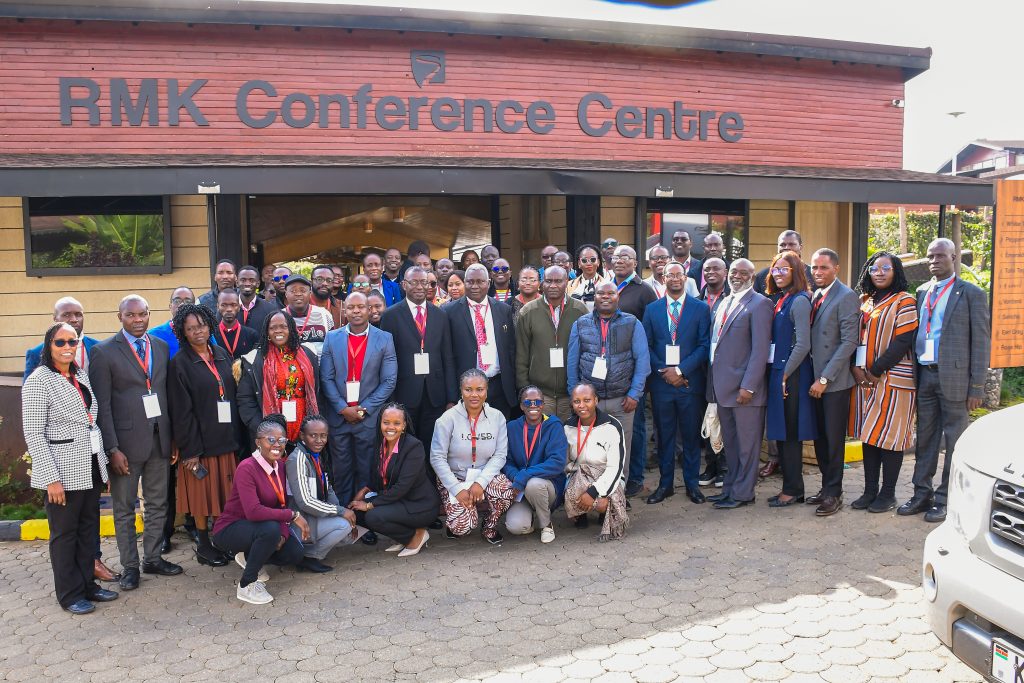
A4EA AAU advanced research design African universities agriculture Applied Quantitative Methods APSP ARD CABE call for applications cash transfers COVID-19 employment energy EOI Featured higher education IDS INCLUDE Job opportunity LEAP Africa MMRC MRPP opportunities opportunity PAMOJA TRUST partnerships PASGR PDT pedagogy PedaL press release professional development and training professional training public policy Research research methods scholarships social protection Social sciences University of Ibadan University of Pretoria utafiti sera vacancy Youth employment
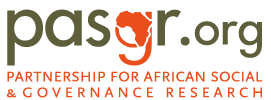
6th Floor, I & M Building
2nd Ngong Avenue, Upper Hill
P.O. Box 76418-00508
Nairobi, Kenya
Email: info@pasgr.org
Tel: +254 (0)20 2985000;
+254 (0)729 111031 / +254 (0)731 000065
Legal counsel provided by Hurwit & Associates and Muthoga Gaturu & Co. Advocates
